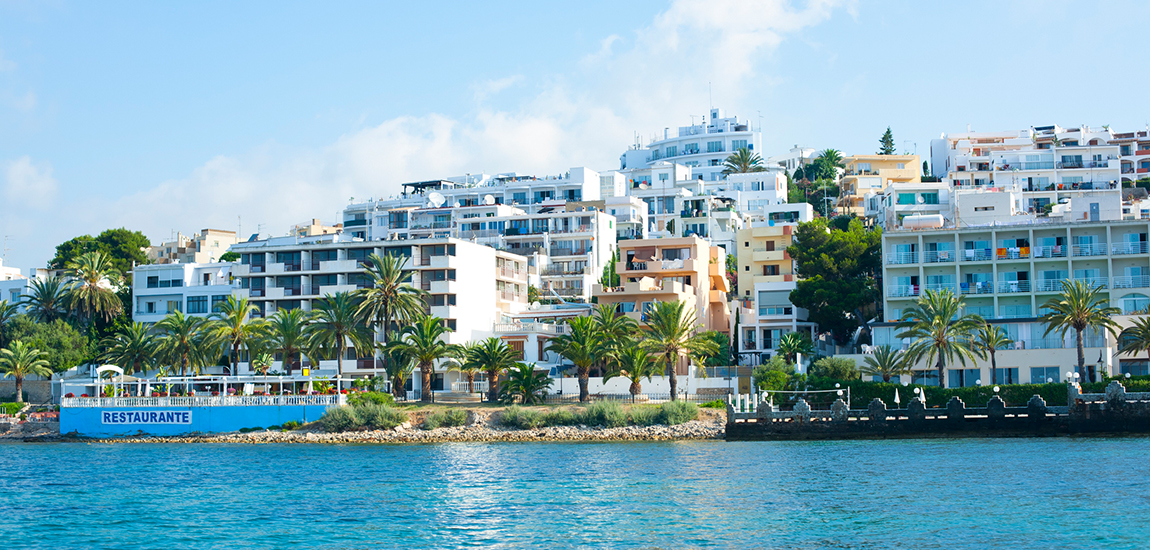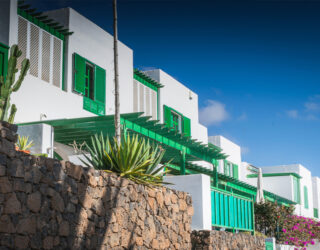The Balearic Islands Parliament approves a new law that seeks to contain, monitor and improve the quality of tourist offerings. To this end, it has established new measures aimed at more effectively prosecuting illegal offerings. In addition, the law establishes three categories under which saturated and reconversion tourism areas can be classified, and approves special rules for the modernization of tourist establishments in tourist reconversion areas.
The Balearic archipelago, with an approximate area of 5,000 square kilometers and a registered population that currently stands at almost 1,250,000 inhabitants, had more than 607,000 registered tourist bed places at the end of 2023. Nearly three quarters of these corresponded to traditional accommodation (hotels, hostels, apartment hotels, guesthouses, etc.) and 26% to tourist holiday homes or establishments. Despite measures adopted over the past two decades to contain tourist offerings, they grew by 23.4% between 2015 and 2023, although it was in tourist holiday homes and establishments where the growth in this period has been most notable. Around 92 thousand bed places were added in this segment, representing an increase of 135%, compared with 5.5% (23,221 new bed places) in the traditional accommodation group.
These figures, along with the continued existence of an undetermined (but seemingly significant) number of tourist bed places that are not covered by a license and continue to be offered in the tourist market, have led the Balearic Islands government to approve a raft of urgent measures aimed at containing, monitoring and improving the quality of the islands’ tourist offerings.
Accordingly, on May 6, 2025, the Balearic Islands Parliament approved Balearic Islands Government Decree-Law 4/2025 of April 11, 2025, against illegal offerings, on transitional measures relating to offerings, and on tourism quality on the Balearic Islands. The Balearic Islands government justified the use of the legislative instrument, asserting that implementing the legislative changes constituted an extraordinary and urgent necessity. We summarize below some of the measures aimed at containing and monitoring tourist offerings on the islands:
First of all, it is worth noting that the law eliminates the deadline (June 18, 2026) for island councils to undertake, through their tourist area intervention plans or, failing that, island territorial plans, an evaluation or reevaluation of the ceiling on tourist bed places on their respective islands. Let us recall that, according to the previous legislation, the failure to perform the evaluation by that date triggered the automatic termination of the tourist bed places in the possession of the tourism authorities or the management body, the acquisition of which, incidentally, was suspended for the islands of Mallorca, Ibiza and Formentera (in the case of Menorca, the suspension applied to the commencement of new tourist accommodation activities).
Instead, the new law prefers for the island councils to in any case determine the tourist capacity of each island and, based on that, to approve their corresponding ceiling on tourist bed places. Until this happens, the market for tourist bed places is partially reactivated, while permitting exchanges of tourist bed places between private individuals in certain additional cases and without this being able to give rise to an increase in the number of existing tourist bed places.
In addition, the immediate creation of two temporary banks of tourist bed places is also established. The first temporary bank will include bed places that are cancelled from entry into force of the decree-law until the tourist capacity of the island in question is determined, in order to avoid their disappearing completely if the ceiling on bed places is not reached. The second bank will consist of bed places linked to buildings of interest due to their heritage or cultural nature.
Regarding tourism inspections, the law promotes an increase in the number of resources aimed at surveillance and the implementation of new technologies to detect illegal activities. The law expressly states that inspection services must pay special attention to the detection of illegal offerings with respect to homes being marketed for tourism purposes. It is also worth noting that the law empowers island tourism authorities to sign agreements with national law enforcement agencies and local police to collaborate on tourism inspection tasks.
In addition, with a view to stopping illegal tourist offerings, the law establishes joint liability among owners, renters and marketing entities, while also introducing liability for owners of advertising or marketing channels where they are subject to Law 34/2002 on information society services and e-commerce.
The law significantly stiffens penalties for illegally offering tourist services, increasing the amount of fines and providing for the temporary or definitive closure of establishments that are repeat offenders. Lastly, it is worth noting that the law provides for the possibility of imposing penalties on digital platforms that facilitate illegal offerings.
In addition to addressing the problem of illegal offerings, the law also includes other measures aimed at increasing the quality of tourist offerings on the islands.






